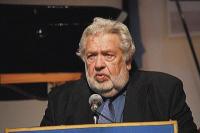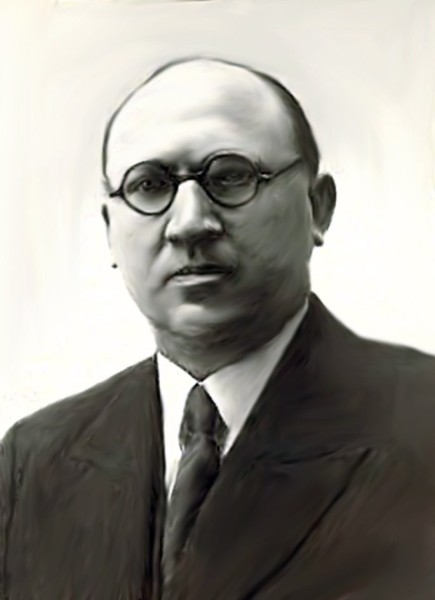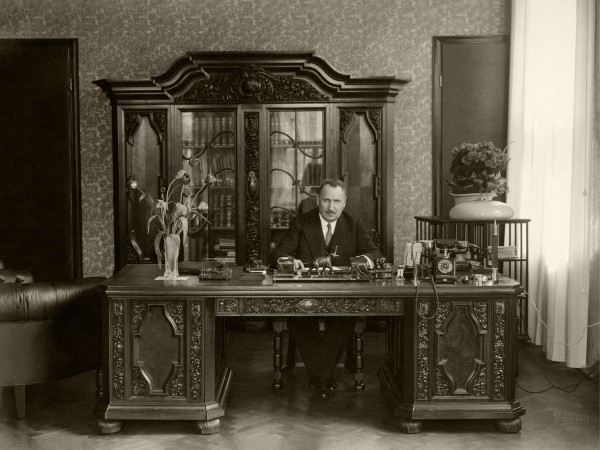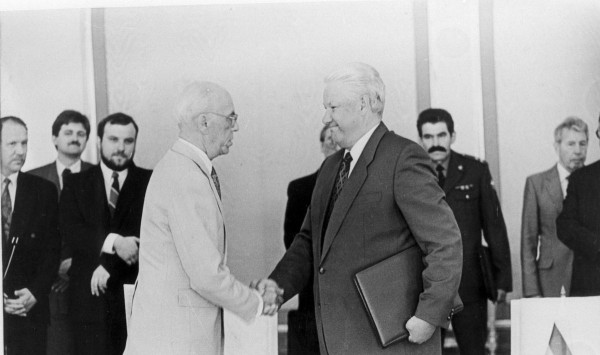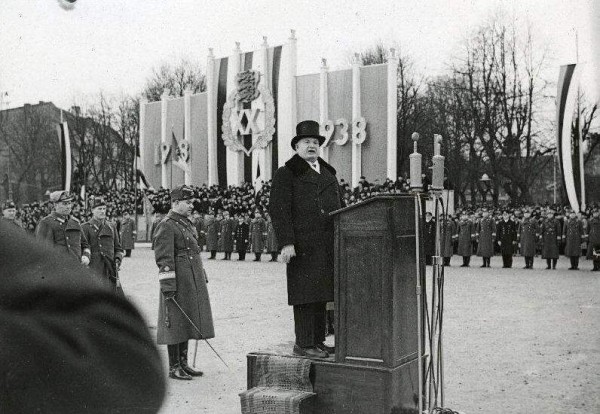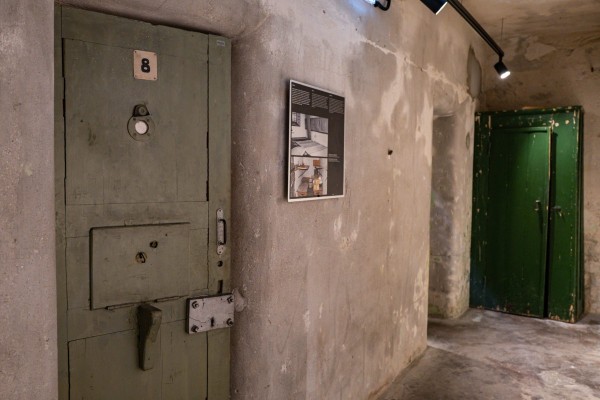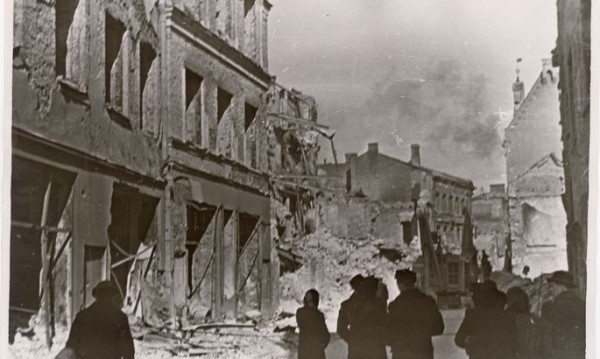June 23rd marks Victory Day (Võidupüha), commemorating the decisive battle in 1919 of the War of Independence at Cesis (Võnnu) in Latvia where Estonian forces defeated the German Landeswehr who sought to re-assert Baltic-German control over the region. On Victory Day the contribution of all Estonians and others who fought to gain and retain Estonia’s independence is duly recognized.
There is no consensus on how crucial was foreign aid, both military and moral, in being a determining factor in Estonia’s victory during the independence war. Today there is agreement that Estonia alone cannot withstand for long the offensive of a much superior military force. But an ongoing public debate pits those who totally reject the possibility of any country coming to Estonia’s aid were she to be attacked against those who are convinced that NATO is firmly bound by article five of its charter. The article states that an attack on any one member state shall be deemed to be an attack against all.
In the absence of any international mutual-assistance agreement prior to War of Independence, Estonia was helped militarily by volunteers from Danish, Finnish, Swedish, Ingrian, Baltic-German units. The Estonian People’s Army (the name at the time) in addition had Jews, Poles,Tartars, Latvians, Lithuanians and Russians and others serving within its ranks.
In short the Estonian Provisional Government was forced to defend its declaration of independence of February 24, 1918 against attacks by Soviet-Russian troops and the Baltic-German Landeswehr army. A multi-national force of 85,000 Estonians, 3,700 Finns, 5,000 Russians commanded by Estonians, 9,800 Latvians, 3,000 British, 400 Swedes, 250 Danes, 700 Baltic Germans and others named above helped determine the Estonian victory.
Advertisement / Reklaam
Advertisement / Reklaam
Inadequate war supplies plagued the Estonian effort throughout the war. As one example of foreign assistance, the Northwest Army under Estonian command with Russian units in the autumn of 1919 was severely handicapped by the lack of war materiel. To help, the British, with French concurrence diverted a large consignment originally meant for Finland to the Northwest Army. This included 450 machine guns, 4,200 rifles, 10,000 automatic pistols, 30 tanks, 32 airplanes, small arms ammunition, swords, field kitchens, saddling and helmets. The Northwest Army had accumulated 18,500 men with 56 field pieces. Opposing them was the 7th Red Army with 26,000 men and 148 artillery pieces. This was the extent of help from the allies on one front. The British had also provided several naval vessels to augment the war effort. Logistically Estonians would be the underdog at other fronts as well but superior fighting ability, effective leadership and high morale would eventually rule the day.How crucial was help from allies in determining the war’s outcome? Admiral Johan Pitka, founder of the Defence League (Kaitseliit), main organizer of the Estonian navy and creator of the armoured trains that had a major impact during the war, stated the following over twenty years later in the summer of 1944 when Soviet forces were using their overwhelming logistical superiority to invade the country and he was attempting to mobilize a last minute effort to save the country from catastrophe: “Even though much has been politely discussed about foreign assistance, it was actually valuable in boosting morale, because all of the weight of the War of Independence fell directly on our shoulders.”
One cannot draw direct parallels between allied contributions over 90 years ago and the promise of collective defense through the North Atlantic Alliance. Cynics and skeptics, both Estonian and others insist that it’s naïve to expect the USA for example to muster the political will to step into a military confrontation between Estonia and Russia. (Which other nation would want to use its military to, let’s say, “protect the interests” of Russians in the near abroad?) The pessimists point out that the Baltic states are marginally important to the interests of the rest of Western Europe and the USA. They wouldn’t dare jeopardize beneficial economic relations and world peace with Russia for the sake of the sovereignty of a peripheral country such as Estonia. The absence of a substantial NATO presence there proves this. Prominent US politicians have stated this. Until a few years ago a contingency plan for the defence of the Baltic did not exist. That’s the argument of the “realists”.
Advertisement / Reklaam
Advertisement / Reklaam
Even some who believe in the security guarantees of NATO point out the problematic nature of a NATO commitment. In the post cold-war period NATO operates with a more diverse agenda, provoking disagreement on how much emphasis should be placed on collective defence for individual members. The precise meaning of Article five has also become less certain leading to uneven expectations as to its use. It’s uncertain whether the alliance’s internal solidarity is sufficiently strong to guarantee uncompromising response to territorial defence.Most Estonians suggest that only alarmists believe that a pending military attack is unavoidable for Estonia in the future. In Admiral Pitka’s estimation, victory in the War of Independence depended more on the moral and physical fortitude of Estonians themselves than on their allies. In contrast, if Estonia must face the advanced military technology and vastly superior numbers of a likely aggressor, the support of willing allies is critical. But it’s likely that the ready commitment of is also contingent upon Estonia’s military preparedness and ability to withstand an attack until help arrives. Best wishes for Võidupüha!
Laas Leivat







